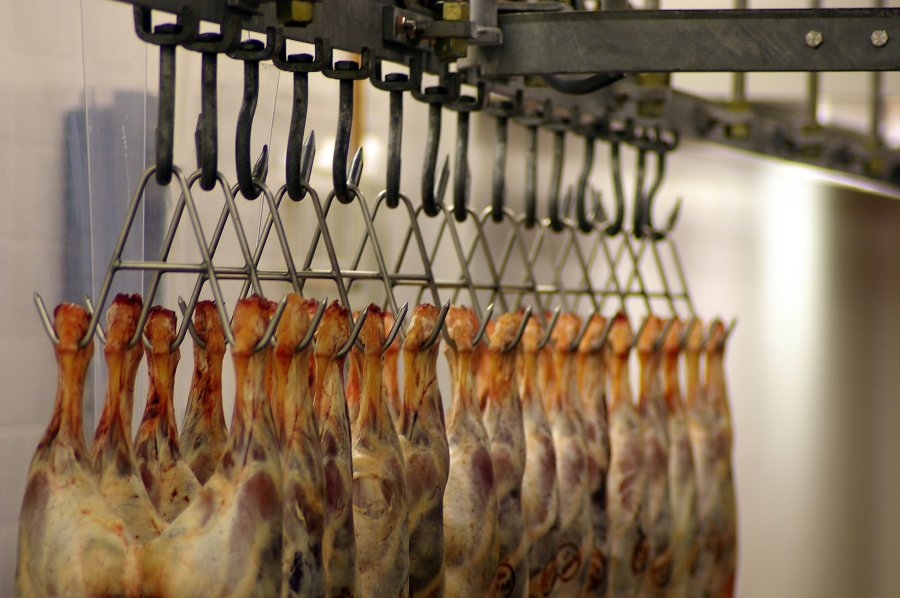
Small and local abattoir closures are heavily impacting farming and food business across the UK, campaigners have warned.
A new survey of more than 1,300 farming and food businesses has found that local abattoirs are seen as a vital service.
The vast majority (88%) of respondents stated their closest abattoir is either essential or important to the success of their business.
And 64% feel that the availability, or lack of availability, of a local abattoir impacted their future business plans.
The survey, carried out by the Sustainable Food Trust and National Craft Butchers, highlighted the benefits small abattoirs can bring.
Respondents ranked animal welfare, the local economy and the environment as chief amongst these.
The loss of abattoirs, at a rate of 10% per year according to the Food Standards Agency, has left customers reliant on only a handful of operators, creating a fragile system that is vulnerable to collapse.
And journey times have increased significantly, with some animals now travelling more than 200 miles to slaughter.
Respondents also reported that many remaining smaller abattoirs are increasingly busy and difficult to book into.
These factors have forced some businesses to close or limit their operations.
Remote and island communities have been particularly affected. One farmer on Orkney said: “Since Orkney abattoir closed in 2018 the situation here is dire.
"The next nearest abattoir costs us over £250 just for the ferry taking a trailer that can hold max 20 sheep, then there is the 30-mile drive to the port and the 110 mile drive to Dingwall.”
And a number of respondents were very clear that their business was entirely dependent on their local abattoir.
One respondent said: “If this one closed, we would lose our business,” and another said, “We are very lucky but if it shut, I would have to stop livestock farming as the nearest would be too far away.”
More than 30 respondents used an abattoir which has closed down since the survey was conducted.
One customer of Tottingworth abattoir, which closed last year, said: “Without a local abattoir a major part of our local livestock sales will disappear.
"In the South East there are so few abattoirs left that losing any more would prevent sales and increase food miles.”
The survey showed that farmers are keen to find solutions, with 64% saying they would be interested in cooperative-owned abattoirs.
The majority (81%) expressed an interest in mobile abattoirs, with 73% saying they would pay more for this service.
There was also interest in doing more with their products, as 33% said they would collect the hides and skins if they had access to further processing facilities.
To revitalise the sector, however, the government needs a multi-pronged approach to address the problems that are leading to closures.
Megan Perry, head of campaigns at the Sustainable Food Trust, said: “This survey highlights that a diverse network of abattoirs throughout the UK is vital to farms of all sizes and to the viability of local meat businesses.
"We welcomed the government’s announcement of funding for the sector, however, for this fund to have the impact that is needed, it must be accessible, broad and with a long timeframe.
"We will work with the Abattoir Sector Group and Defra’s Small Abattoir Working Group in progressing solutions to these issues.”
